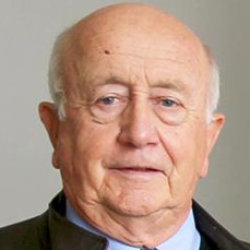MACK WILLIAMS. Revisiting Australian strategic policy in the light of NDS18 Where to start ?
February 3, 2018
The new US strategic policy requires serious and urgent revisiting of our key strategic policy positions to identify implications it has for Australia. Any attempt to minimise differences for short term political gain could endanger the nations longer term future.
It has been argued earlier (China : “All the way with USA”?) that the package of strategic reviews recently announced by the US along with more detailed policy recommendations in the pipeline are so significant as to demand revisiting of Australian strategic thinking. The embarrassing confusion caused by Defence Minister Paynes rush to support the strategic concerns highlighted in the new US doctrine only to be quickly and publicly corrected by both Foreign Minister Bishop and Prime Minister Turnbull stands testimony to the urgency of that need.
Here are some obvious general questions which need serious consideration. There bound to be plenty of others more detailed , such as nuclear and disarmament issues:
. What has driven this major US change of focus from counter-terrorism to global competition against China and Russia? How far does Australia, from our joined at the hip position, have to follow the US down the new path? Clearly the recent comments by Bishop and Turnbull acknowledge just how much of a loaded question they consider this to be.
.Part of the US reasoning may well be a belief that the wars against IS and the Taliban have been won but holding back from the embarrassing triumphalism of George Bush Jr. Is that really the Australian assessment too? The Turnbull led publicity about withdrawal of the F18s certainly smacked of a bit of that.
. Or is it more a sign of just how far the military junta around Trump is taking the opportunity to correct policy by returning to a more conventional war strategy ? One that can be fought best by hardware and technology. The excellent detailed series on the Vietnam War screened by SBS was a vivid reminder of how the then US administration struggled with the same issue and lost its way.
.Perhaps the most fundamental question for Australia ( Michael Keatings compelling “Who Will Pay for Trump’s Wars?”) are serious and credible doubts that the US will be able to fund the huge additional defense expenditure on which it will depend? Let us not forget that budgetary constraints provided a major impetus behind Obamas pivot.
. A timely report from the US Studies Centre ( Dysfunctional Politics are seriously affecting US National Security) supports these doubts by pointing out that:
Despite the launch of the National Defence Strategy, President Trump’s repeated calls to expand the size of the US military, blunt warnings by Pentagon leaders about a lack of military readiness, 17 deaths last year due to two avoidable naval crashes in Asia, Republican majorities in both houses of Congress, the North Korean nuclear threat and increasingly truculent behaviour by China and Russia, Congress has not yet appropriated the money to fund President Trump’s first defence budget it also reveals an unwillingness to reduce the scope of its global military role. To meet its ambition, the strategy needs to be funded and political trends in the United States point in the other direction.
. In turn this leads to the vexed issue of burden sharing by US allies and partners which the new strategic policy demands. This is not a new issue nor one on which Australia has not experienced problems in the past viz. funding for the infrastructure required to host additional US Marine and Air Force deployments in the Northern Territory and the need for expansion of port facilities in Darwin. But the additional emphasis now being placed on it could well pose serious budgetary issues for Australia.
. The new US policy papers make much of the importance of strengthening and expanding the support of allies and partners but little detail is offered about how this is to accomplished. The National Security Strategy (NSS) contains some bland references to the use of diplomacy but with no real strategy outlined. How can this be achieved when the State Department has been so ravaged by the Trump Administration? Most of the countries in this category are still without US Ambassadors! More than its direct implications for Australia, this deficiency certainly raises major questions about meeting the soft power which China has deployed so successfully in our region.
.Tucked away in NSS is an intriguing new policy for development assistance - which it presents as a tool for building of international support. This would be managed through the US government funding US corporates to provide overseas development assistance a surprising form of trickle down ! How would this shape up against Chinas development assistance program about which Australian ministers and officials have expressed so much concern in the South Pacific? What would happen to USAID?
. Above all, probably the major question for us is how to manage an alliance/partnership with the US which has as its declared aim the need to be unpredictable to allies as well? We have experienced problems enough in the past being caught unprepared by US policy shifts. Back in the Vietnam days serving in Washington, we likened this to the problem of a mosquito on the elephants back you can so easily be squashed as the elephant moves without forewarning. A classic was McMahon criticizing Whitlam for going to China when it turned out Kissinger had been there at the same time preparing for Nixons visit. And there have been plenty of signs that this remains an issue. How to plan our national strategic policy based on the likelihood that Australia may not be in the loop in any major US moves to ensure that the enemy/rival is trapped and unprepared?
Mack Williams,Former Ambassador to the Philippines and Republic of Korea, Royal College of Defence Studies
